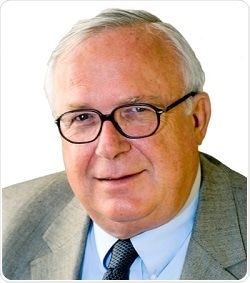An interview with Dr. Michael Merzenich conducted by April Cashin-Garbutt, MA (Cantab)
There are dozens of brain training apps on the market. Regrettably, very few have any studies showing efficacy.
A recent systematic review from experts at five Alzheimer’s research centers looked at 32 brain training programs, and found only seven had any studies to review showing effects in the target population of aging adults.
They found only the exercises from Posit Science (which are in our BrainHQ app and online platform) showed efficacy in multiple high quality studies. You can read the review article 'Enhancing Cognitive Functioning in Healthly Older Adults'.

Why did you develop BrainHQ and how does it differ from other apps?
Our early work at UCSF (and at other labs around the world) in discovering lifelong plasticity was based on hundreds of animal experiments. We showed that adult brains are plastic – capable of chemical, structural and functional change at any age, in response to sensory and other training.
Eventually, we showed we could drive similar plasticity-driven benefits in humans. We established Posit Science and built BrainHQ to get that technology out of the labs and into the hands of the billions of people who could benefit.

What did the development process involve and what stage is the app at?
This work has been underway for more than three decades and has been funded by many tens of millions of dollars of grants and venture capital.
We work with hundreds of university-based collaborators in designing, testing, refining and validating our exercises and assessments.
Currently, there are 29 exercises on BrainHQ addressing most major systems of the brain. We have scores more in development and add them as they are validated.

How much evidence is there that BrainHQ improves brain health?
There are more than 150 peer-reviewed science and medical journal articles on the benefits of BrainHQ exercises and assessments, across a variety of populations.
We see gains in standard measures of cognition (eg, speed, attention, memory and executive function), quality of life (eg, mood, confidence, functional independence and self-rated health) and real world activities (eg, gait, balance, driving and everyday cognition).
Currently, more than 100 additional studies are underway. We are evidence-based and focus on what we see in studies, but I know many people were more impressed by Tom Brady’s revelation just before the Super Bowl that he is an avid user of BrainHQ. We are grateful for Tom’s unsolicited kind words.

What do the online exercises involve?
BrainHQ exercises focus on the most elemental parts of brain processing – especially, speed and accuracy of visual and auditory processing, which are the foundations for higher cognitive functions.
Smart algorithms enable the exercises to personalize to each user within minutes and to continuously adjust to identify, measure and expand the limits of your abilities.
How do you decide which exercises you should do?
The Personalized Trainer in BrainHQ uses smart algorithms to continuously measure one’s abilities across the brain and select daily workouts that target areas for improvement. Users can also take courses toward specific goals or can choose individual exercises based on their preferences.
What further research is needed to study the impact of brain training apps?
We are at the beginning of a revolution in brain fitness comparable to the early 1970s in physical fitness. There is a great deal to learn.
Consumers should demand brain fitness exercises backed by evidence – by multiple peer-reviewed studies. Every provider in this business should engage in research and studies.
What do you think the future holds for brain training?
In the near future, we will all be able to continuously monitor and improve our brain health with the devices that have become ubiquitous in our lives and that we carry everywhere. The result will be billions of people who are quicker and more accurate – translating into greater productivity and happier and healthier lives.
Where can readers find more information?
BrainHQ.com is not only the platform for our exercises, it also includes a tremendous amount of information about brain health. You can start the exercises for free online or with the free app from the Apple App Store.
Annual subscriptions are $96 ($8 per month) or $14 for a month-to-month subscription. Many public libraries now offer BrainHQ for free.
About Dr. Michael Merzenich
 Dr. Michael Merzenich is the Chief Scientific Officer of Posit Science, which develops and distributes plasticity-based brain training programs and assessments, found effective in more than 100 studies.
Dr. Michael Merzenich is the Chief Scientific Officer of Posit Science, which develops and distributes plasticity-based brain training programs and assessments, found effective in more than 100 studies.
Dr. Merzenich’s seminal experiments led to the discovery of lifelong plasticity, and to its first practical application, when he co-invented of the cochlear implant. His discoveries and translational work in plasticity have led to many honors, including being elected to both the National Academy of Sciences and the National Academy of Medicine.
In 2015, he was awarded the Russ Prize, the highest honor in bioengineering, by the National Academy of Engineering, and, in 2016, he received the Kavli Laureate in Neuroscience, among the highest honors in that field, from the King of Norway.